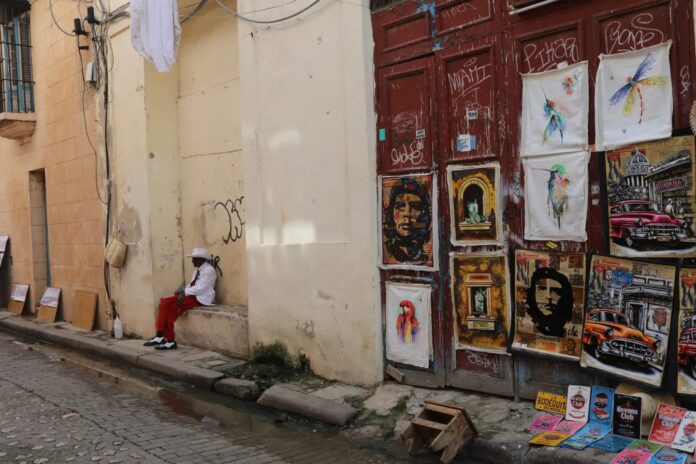
By Francisco Acevedo
HAVANA TIMES – As has been customary for decades, the vast majority of United Nations member countries condemned the US embargo on Cuba in the General Assembly, an action that, in the real world, means very little because everything continues as before.
Of course, the state media and the government celebrate it every year as if they had won the jackpot, but it means nothing concretely, since it is not a binding vote. Fundamentally, it’s not that the rest of the world supports the dictatorship but rather that they sympathize with the Cuban people.
It’s clear that the citizens are the ones most affected by this situation, but for the first time, I think those at the top feel the pressure. Perhaps it’s worth maintaining the policy that once seemed outdated, especially because, in many ways, the authorities have managed to bypass the embargo with its allies.
What’s happening now is that there are fewer and fewer friendly nations, and they are also being pressured in their own way. So, in recent years, the effects of the embargo have genuinely been felt in the higher echelons.
In this context, something truly unusual happened: Argentina’s president, Javier Milei, dismissed his foreign minister, Diana Mondino, after she voted in favor of Cuba at the UN. Traditionally, Argentina has cast a supportive vote, but Milei now wanted to align with the United States and Israel, the only nations that consistently break the unanimity.
It’s not just about the Cuba issue; there have been other disagreements since the ultraconservative leader took office, but this time it reached a breaking point.
The Dismissal of the Cuban Deputy Prime Minister
Speaking of dismissals, the one making waves this week on the island was Cuban Deputy Prime Minister Jorge Luis Perdomo. As usual, it was attributed to “errors” in the performance of his duties, without providing further details.
The corruption narrative is resurfacing, though shrouded in secrecy, as happened when Alejandro Gil, the Minister of Economy from 2018 to 2024, was dismissed in February of this year. We still don’t know what he did because the investigation is supposedly ongoing.
Ambiguous Message from the UN and the Declining Economy
Returning to the UN, the European Union issued a somewhat mixed message, lamenting the negative impact on the Cuban people’s standard of living while also expressing concern about the human rights situation in the Caribbean nation.
“The EU believes that lifting the embargo could make economic reforms more effective and facilitate the opening of Cuba’s economy to benefit the Cuban people,” it states, while also urging the Cuban government to “fully guarantee its citizens internationally recognized civil, political, and economic rights and freedoms.”
I’m not sure what else they need to realize that this last part will never happen. Since 1992, they have supported the official position —this year with 187 countries in favor, with only the two mentioned exceptions and Moldova’s abstention. Yet the reality in Cuba remains unchanged.
According to the report presented at the UN, between March 2023 and February 2024, the US embargo, established in 1962, caused losses exceeding $5 billion, contributing, among other things, to the massive blackout on October 18, which paralyzed much of the Cuban economy for several days.
Tourism, which accounts for over 10 percent of the Gross Domestic Product, projected only 2.7 million tourists this year—a 16 percent decrease from its previous forecast and far below the 4.7 million who visited in 2018 before the pandemic.
The sugar industry has had disastrous harvests for years, and foreign trade data from 2023, published by the National Office of Statistics and Information (ONEI), indicate that, for the first time, sugar imports exceeded exports.
Last year, Cuba imported sugar and related products for $36.5 million USD, while exports totaled only $11,2 million.
China recently canceled a major contract to purchase more than 400,000 tons of sugar annually from Cuba because the government has not implemented market reforms to revive the ailing economy and pay its debts to Chinese companies.
Among Cuba’s major exports, only tobacco and alcoholic beverages have increased, while vehicle imports saw a surprising rise (up 138 percent, from 2,472 units in 2022 to 5,871 in 2023), but tractor imports dropped sharply (down 70 percent, from 446 in 2022 to 136 in 2023), indicating minimal investment in the farm sector.
In total, the island exported goods worth about $1.5 billion (down $587 million from the previous year) and imported nearly $9 billion —a staggering disparity that leaves the Cuban economy wholly dependent on the international market.
Mexico has been supporting Cuba by sending oil, supplementing the ever-dwindling supplies from Venezuela and Russia. However, it’s unclear whether the oil is sent free of charge or at a reduced price.
In any case, the authorities have publicly acknowledged more than once that the amounts are insufficient to provide electricity across the country.
Tropical Storm in the making
Currently, there is a likelihood of a tropical storm forming south of Cuba, and Eastern Cuba is already bracing for a possible impact, as it has yet to recover from last month’s disaster, which left a dozen dead, largely due to the disorganization of those responsible for managing the crisis.
This time, the first alerts have already been issued, and evacuations have begun, so the Civil Defense system, built over the years, is expected to work efficiently.
Another natural phenomenon that could deepen the crisis, while the UN continues to cast symbolic votes instead of taking truly effective measures to provide solutions.
Read more from Cuba here on Havana Times.




